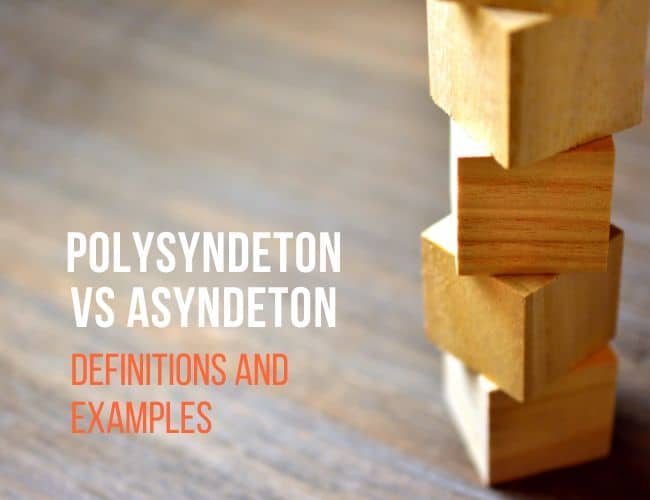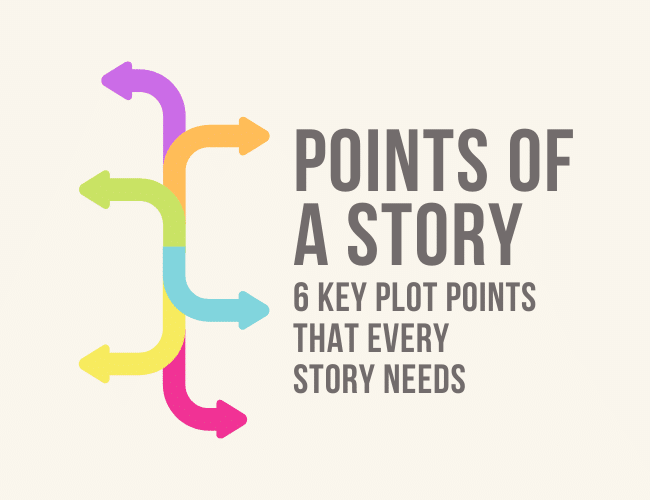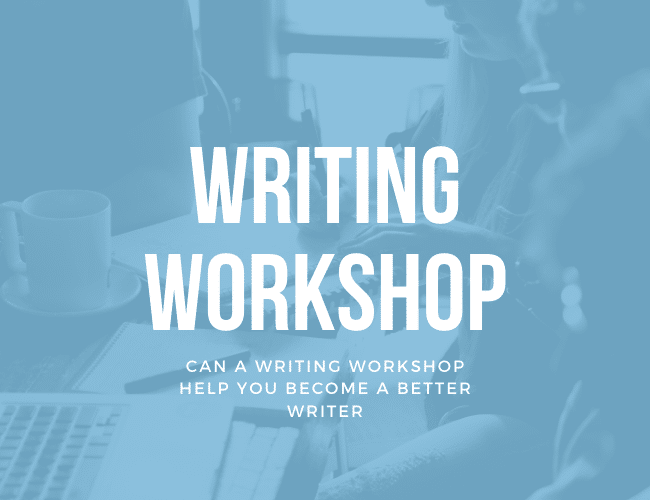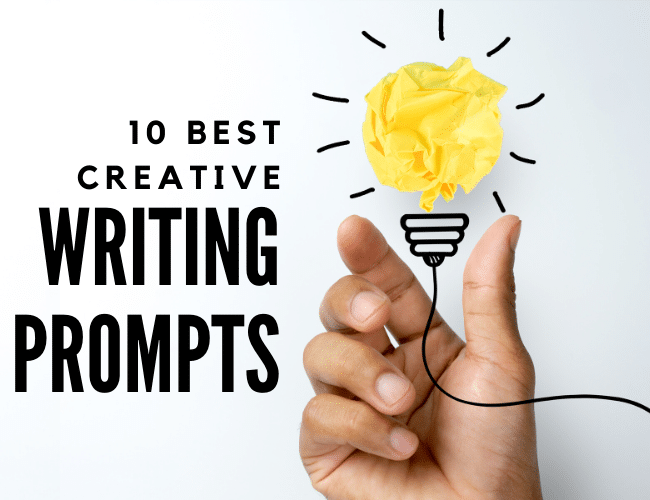
Polysyndeton vs. Asyndeton: Definition and Examples
Today, we’ll look at the difference between polysyndeton vs asyndeton, share some examples, and explain how and when to use them both in your writing. Let’s get started!

Today, we’ll look at the difference between polysyndeton vs asyndeton, share some examples, and explain how and when to use them both in your writing. Let’s get started!

One thing writers have told me consistently is that knowing story structure and the major plot points—or points of a story—makes writing great stories easier. But what are the main points of a story? How can you get them into your books?
I’ve personally found story structure to be incredibly helpful, not just in writing novels and screenplays, but also in memoir and even, sometimes, writing nonfiction books.
In this guide, we’re going to talk about the basic points of a story and how to use story structure to make your writing easier and more effective. I’ll share the six major plot points and talk about a few other points you might look for when writing a book that will give you a general roadmap to writing your story.

Getting an audiobook produced for your book opens up a whole new group of readers. In fact, about 26 percent of readers only listen to audiobooks, according a study done by the Library Journal. Which means, if you don’t have an audiobook, you’re losing readers. But how do you get an audiobook produced, and how do you choose the best audiobook narrator for your book?

How do you write beautiful, award-winning novels, memoirs, and short stories? One tried-and-true way is through a writing workshop, a program with other writers who can give encouragement, feedback, and support as you write, edit, and publish your writing.
In this post, I’m going to share what a creative writing workshop is and how you can use it to improve your writing habits, get feedback on your creative writing, and go on to publish award-winning writing. Then we’ll talk about how to find a writing workshop, whether online or locally, and how to get the most out of it.

You get better at any skill through practice, and creative writing prompts are a great way to practice writing.
At the end of every article on The Write Practice, we include a writing prompt so you can put what you just learned to use immediately. And we invite you to share your writing with our community so you can get feedback on your work.
The Write Practice is more than just a writing blog. It’s a writing workbook, and we think it’s the best one on the Internet (of course, we’re a bit biased).